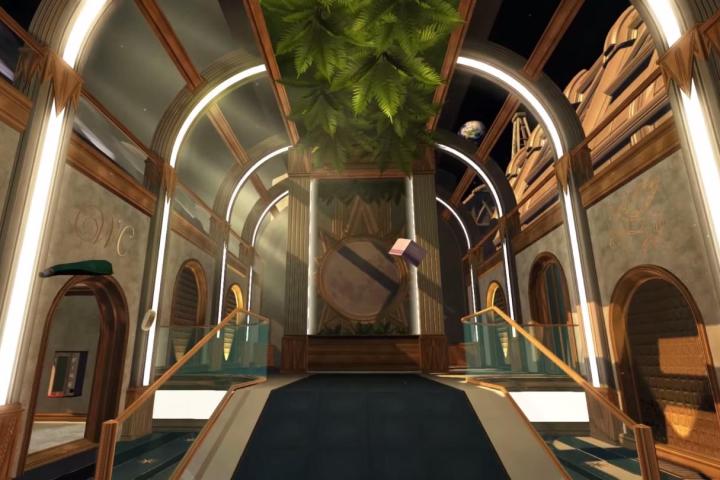
Far from the prosaic, terrestrial confines of Gone Home, Tacoma is set high above the Earth’s surface in the lunar transfer station Tacoma, a luxurious space station reminiscent of luxury cruise ships with a hint of BioShock’s Rapture. That particular comparison is unintentional, according to the developer, but not unfounded. Before starting their own studio, Gaynor and other core members of the Fullbright team worked together for 2K Marin where they helped develop BioShock 2 and took the lead on its critically-acclaimed expansion, Minerva’s Den.
Gaynor points out that any science fiction game with decadently designed spaces will necessarily draw comparisons to BioShock now, but he also admits that their experience with the franchise almost certainly had a subconscious influence. Gaynor also specifically cites one of BioShock’s predecessors, System Shock, as a conscious influence on Tacoma, particularly an optional mode that would remove combat entirely and make it a game of strictly exploration and storytelling
Fullbright aims to build on the foundation of Gone Home by keeping Tacoma‘s focus on environmental storytelling and exploration, but in a drastically different environment that offers plenty of surprises to fans of the studio’s first game. Gaynor focuses on the station’s micro-gravity, which is apparent in the trailer’s floating objects, as a feature that adds unexpected mechanical richness to Tacoma.
Like the rest of the world, the Fullbright team has been eagerly consuming the videos of ISS astronaut Chris Hadfield as research for what living in a micro-gravity environment is like. While not treating the game as a mathematically rigorous simulation, Gaynor said that researching the intersection of physics and everyday life for people living in space has been extremely fruitful for the design process as the team develops ways for the player to interact with the environment.
The most important revelation in the interview comes at the very end, when Gaynor is asked about the presence of toilets: “I don’t want to spoil anything but I will say I don’t think it would be a Fullbright game without flushable toilets, and I would be comfortable saying, as a totally side-comment, that space toilets might be the final frontier of game interactivity.”
Check out the full interview over at Rock, Paper, Shotgun. Tacoma is currently set for release some time in 2016.


